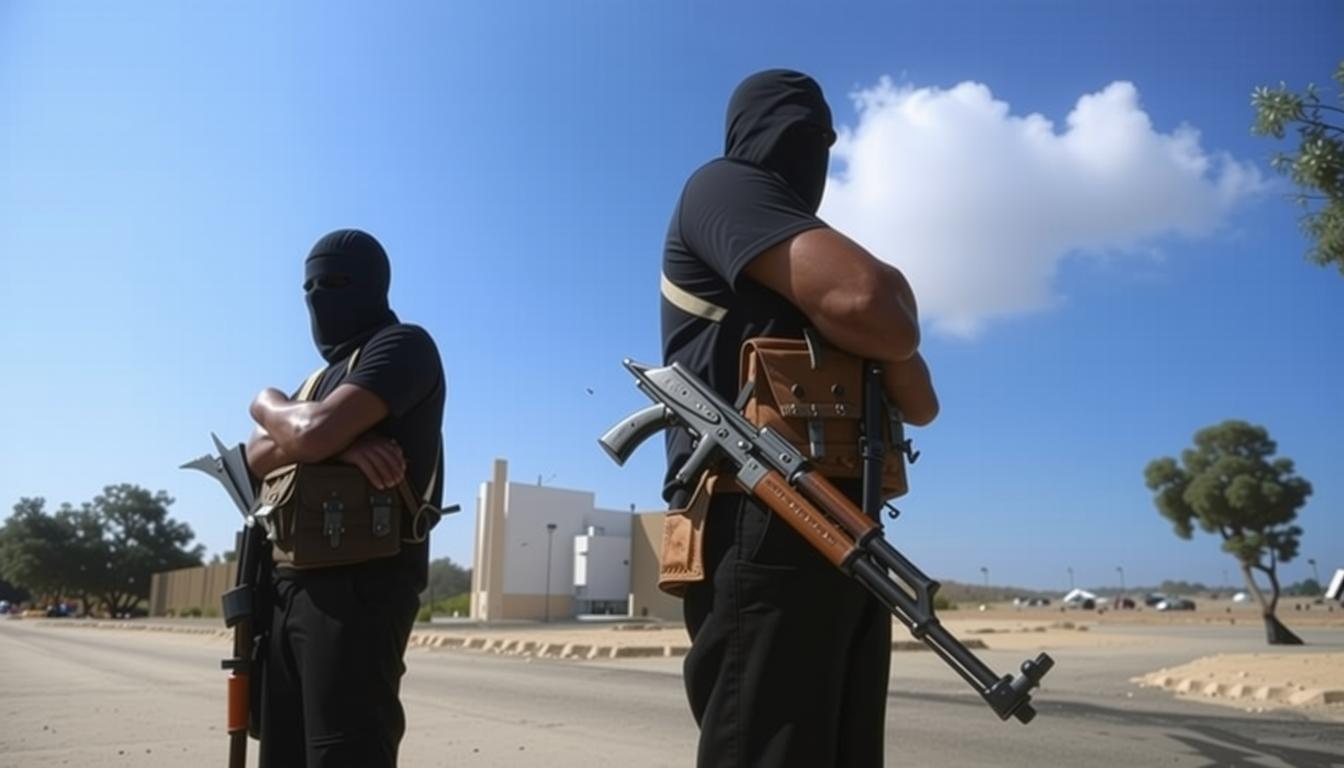Hamas’s Strategic Gamble in Gaza: A New Era of Governance?
In the aftermath of a U.S.-mediated ceasefire in Gaza, Hamas is making its intentions clear: it plans to remain a significant force in the region. Despite the fragile peace, the group is maneuvering to secure a role in post-conflict governance, challenging the U.S. peace plan that demands its disarmament.
Hamas’s Political Ambitions
Hamas is actively seeking a governance role in Gaza through negotiations with Arab mediators. This ambition conflicts with the U.S. peace proposal, which insists on the group’s complete withdrawal from power. The group’s recent actions, including probing Israeli defenses and clashing with rival Palestinian factions, underscore its determination to maintain control.
Ceasefire Tensions and Diplomatic Efforts
While Hamas aims to assert its dominance without reigniting conflict, the situation remains tense. “Hamas wants to demonstrate its resilience and strength in Gaza,” said Avner Golov, a former Israeli security official. Recent talks in Cairo revealed Hamas’s refusal to be sidelined, as discussions shift towards finding alternative governance solutions for Gaza.
Despite the peace plan’s call for disarmament, Hamas is hesitant to relinquish its arsenal without assurances of a lasting peace. The group is advocating for a decade-long ceasefire to facilitate discussions on Gaza’s future.
Ongoing Skirmishes and International Reactions
Hamas’s recent attacks, including those on Israeli soldiers, have tested the ceasefire’s limits. Israel’s retaliatory strikes have further strained the fragile peace. Arab mediators and Israeli officials are urging Hamas to halt these provocations to prevent the ceasefire from collapsing.
U.S. officials, including Special Envoy Steve Witkoff and Vice President JD Vance, have been actively engaging with Israeli leaders to maintain the ceasefire. Secretary of State Marco Rubio emphasized the importance of preserving peace during his visit to the region.
Future Prospects and Challenges
The peace process is at a critical juncture, with the release of hostages and the ceasefire holding for now. However, the risk of renewed conflict looms as both sides navigate the complex political landscape. The U.S. administration is keen to ensure that the ceasefire remains intact, sending high-level envoys to reinforce this message.
Meanwhile, proposals to divide Gaza into separate zones, with reconstruction efforts focused on areas free from Hamas control, have sparked controversy. Arab governments are wary of any plan that might lead to increased Israeli influence in Gaza.
Conclusion
As Hamas continues to consolidate its power, the international community faces the challenge of balancing peace efforts with the realities on the ground. The group’s actions and the responses from Israel and the U.S. will shape the future of Gaza and the broader region.
For further updates, contact Dov Lieber at dov.lieber@wsj.com and Summer Said at summer.said@wsj.com.
Stay informed with the latest global news from Hindustan Times.
